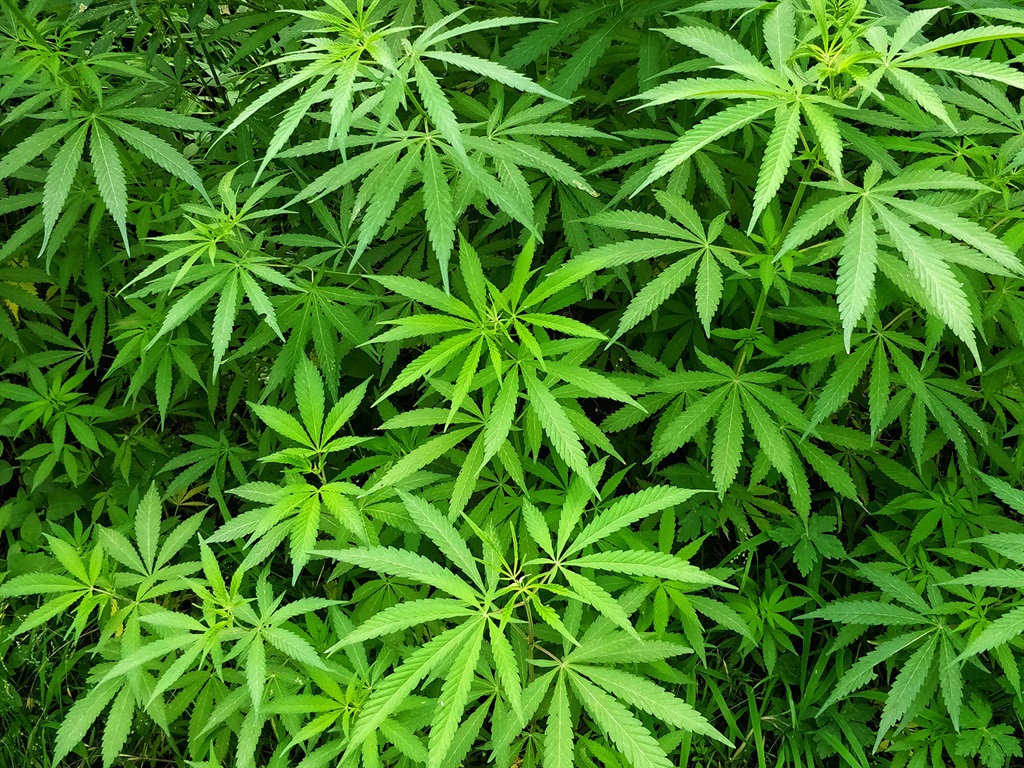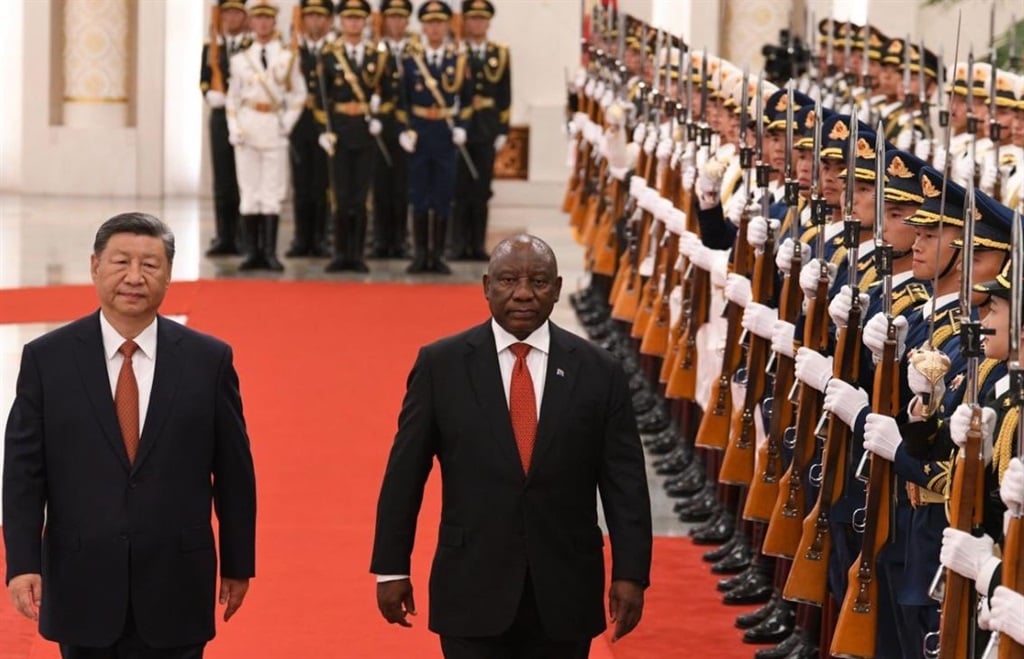
The Cannabis for Private Purposes Bill was introduced in 2020, two years after the seminal Prince Judgment
If the Cannabis for Private Purposes Bill is passed in its current draft, it could lead to the iterative opening up of a cannabis industry, writes Paul-Michael Keichel.
This is a layperson’s guide to South Africa’s cannabis laws. We are presently in a state of flux, so it is important to know from where we came, where we are, and where we are headed, lest we fall technically foul of something and unintentionally find ourselves in trouble.
Before 2018, South Africa’s Drugs Act criminalised the possession and dealing of cannabis (defined in that act as “the whole plant or any portion or product thereof”) unless dealing was done in terms of license under the Medicines Act and strictly for medicinal and/or research purposes.
In 2018, the Constitutional Court came to the assistance of Rastafarian leader Gareth Prince and others, and decriminalised (without upper limits) the personal and private cultivation, possession and use of cannabis by adults (the Prince Judgment).
Haze club case
The court mandated Parliament to formulate and enact responsive laws and regulations within 24 months, or the legal regime created by the Prince Judgment would become final (as it now is). The protections afforded to adults were later extended to children (not to encourage cannabis use by them, but in recognition that punishing them criminally for their poor decisions does more harm than it prevents).
Post the Prince Judgment, and based on a legal interpretation of it, numerous “private grow clubs” started operating, but raids, arrests and intended prosecutions revealed that our enforcement authorities do not consider them to be legal.
The Haze Club case will come before the Supreme Court of Appeal in 2024. If enforcement authorities do not capitulate before then (presumably on the basis of appreciating that an adult cannabis use industry may soon be permissible anyway), the anticipated judgment will tell us whether or not individuals, who are permitted to cultivate their own cannabis privately, may also/instead join a private club, lease private space from a club operator and pay bespoke horticulturists to grow their cannabis for them (better than they can do themselves).
READ | This journalist bought dagga. It was probably illegal. Here’s why
In the meantime, health authorities have been issuing cultivation, distribution and export licences for cannabis, but there has not been a legal route to market for cannabis within South Africa, largely because authorities have not registered any cannabis-based medicines or put in place a legal mechanism to obtain “medical cannabis” (whatever that may be, although certainly a matter of much debate).
Some have exploited what they think is a loophole in Section 21 of the Medicines Act (what is supposed to be an exceptional mechanism for extremely sick people to get hands-on remedies that are not locally available) to call raw cannabis flower “unregistered medicine” and get authorisation to “dispense” it to tens, if not hundreds, of thousands of “patients” all around the country for all manner of petty/fictional ailments.
Whether these so-called script mills (which might bend the Medicines Act to a breaking point) survive into the future as a matter of policy (and established/necessary pharmaceutical standards) is yet to be seen.
Cannabis for Private Purposes Bill
Agricultural authorities have also been issuing hemp permits off the back of what the schedules to the Medicines Act say cannabis is not. It is doubtful that this satisfies the exception to the criminal prohibition on dealing in the Drugs Act, or is otherwise lawful, but that does not matter for present purposes because our enforcement authorities have seemingly turned a de facto blind eye to this (I’d say appropriately, given that hemp” is not a menace to be fought against).
Responsive to the 2018 Prince Judgment, the Cannabis for Private Purposes Bill (CfPPB) was introduced in 2020 and has been through numerous rounds of public comments and responsive amendments. The National Assembly has now approved it and rests with the National Council of Provinces (NCOP).
READ | OPINION: Weed love some help: Why SA’s medicinal cannabis sector needs competition regulation
It would be speculation to predict whether or not additional amendments will be forthcoming through the NCOP. However, if/when the bill is approved by the NCOP, the president may sign it into law with or without first checking with the Constitutional Court that it passes muster.
When the CfPPB becomes law (an act of Parliament) – presuming that it looks mostly as it does presently – it will (materially, for present purposes):
- Redefine “cannabis” as (essentially) only the psychoactive components of the plant (effectively excluding hemp);
- Entirely remove reference to cannabis from the Drugs Act (meaning that cannabis crimes in terms of that act fall away); and
- Create fresh criminal offences for cultivating/possessing/transporting what regulations will say is too much cannabis, dealing in cannabis, and providing cannabis to a child (unless prescribed by a medical practitioner).
Vitally, one will not have committed a crime in terms of the Cannabis for Private Purposes Act (as it will then be, if assented to by the president) if what one does (otherwise as prohibited by the act) is in accordance with a license or permit issued in terms of the Act itself or other legislation – so one already sees the iterative opening up of a cannabis industry foreshadowed by the current draft. It is the sincere hope/intention that this will serve the neediest – not greediest – in our society.
That said, a bespoke act of Parliament dealing with a cannabis industry (much like the Tobacco Act or Liquor Act) would be infinitely preferable to using acts of Parliament that aren’t fit for purpose (although, perhaps some interim accommodations will be made while the bureaucratic wheels slowly turn so that we do not wait too much longer to start unlocking the economic potential of cannabis trade).
In this state of flux, and lest it not be said, members of the cannabis community must remember that while the Prince Judgment did not set upper limits to how much cannabis one may cultivate/possess/consume in private, it did leave the police with a discretion as to whether or not a crime (such as dealing) has been committed and, often, we have seen large amounts of cannabis and/or bespoke growing equipment being utilised by arresting officers to infer dealing and to justify arresting and holding accused persons.
While a recent national directive does caution the police to remain always mindful of and to not infringe on the rights of cannabis cultivating/using civilians, we all know that certain members of the SA Police Service (SAPS) are and will remain rogue and will continue to consider cannabis arrests their means to harass and solicit bribes from law-abiding citizens. Caution, thus, remains the advice of the day until the law is clarified and codified and all members of the SAPS have understood and internalised it.
– Paul-Michael Keichel is a specialist attorney at Cullinan & Associates and has been involved in cannabis legalisation efforts since 2009. Anyone wanting to know more is welcome to contact the writer through Cullinan and Associates.
Disclaimer: News24 encourages freedom of speech and the expression of diverse views. The views of columnists published on News24 are therefore their own and do not necessarily represent the views of News24.






Recent Comments